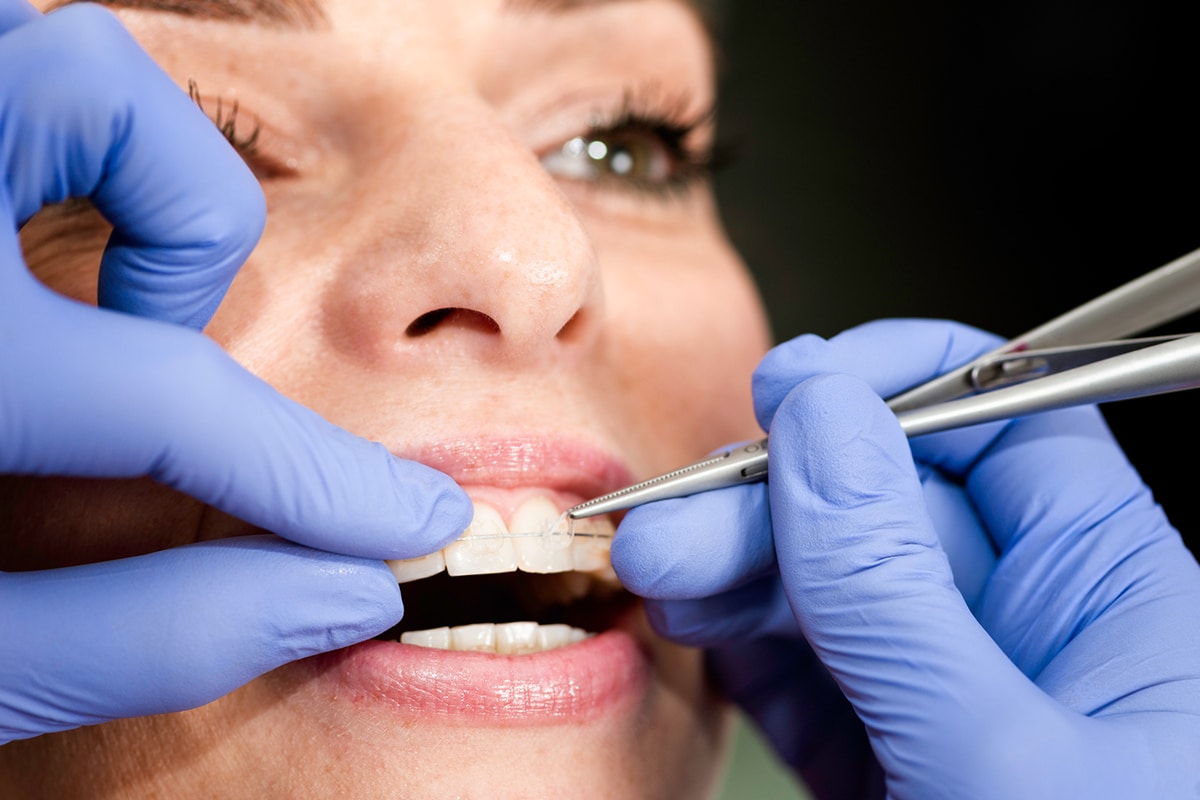
Braces are no longer just for teens. More and more adults are making moves to enhance their smiles and improve their oral health by choosing to undergo orthodontic treatment. Often, that involves wearing braces.
Just like any other patient, they, too, have questions about what to expect during the first few weeks in braces. So, whether you are considering the treatment or you just had your braces placed, here is what you need to know.
Your First Day in Braces
Getting your new braces is a big step, but an exciting one. You can expect your appointment to last about an hour or two, as there are a couple of things that take place. First, your teeth are cleaned and dried so that the brackets can be bonded to them. Once they are placed and secure, an archwire will be threaded through the brackets. And, finally, if you require any elastic bands, they will be added.
Before you leave, a lot of information will be coming to you, such as instructions on brushing and flossing, eating, and handling any discomfort you may experience. Much of this information can be found on your orthodontist’s website, as well.
Immediately following the placement of the braces, you may experience an increase in saliva. This is normal. While it should stop within about 20 to 30 minutes, it can last a few hours as your body adjusts.
Getting Used To Your Braces
It is going to take a few days to get used to your new braces. After all, you are experiencing a new sensation that your cheeks, lips, and tongue are going to need some time to adjust to. It can help to wiggle your lips or feel around with your tongue to increase familiarity. Don't worry—they will feel like they belong before you even realize it.
Do they hurt? You will likely experience some discomfort during this time. This is because your teeth are getting a gentle nudge to begin shifting. Over-the-counter pain relievers can help. If the brackets or wires are irritating the inside of your mouth, use orthodontic wax to cover them.
Eating with Braces
The first few weeks after getting braces will come with some necessary changes in eating habits. Many find this to be one of the biggest adjustments. For instance, chewing gum, hard candies, ice, sticky foods, or crunchy foods can all wreak havoc on your new hardware, so it is best to avoid them.
Stick to softer foods like yogurt, pasta, bananas, eggs, soft veggies, oatmeal, and the like, in the beginning. With time, you will eventually be able to eat a wider variety of foods, as long as you always remember to cut them into small pieces and chew carefully.
Maintaining Your Oral Hygiene
Another challenge that arises with newly placed braces is learning how to properly brush and floss to keep your teeth and gums healthy. You will find that this is a slow process at first. But the more you do it, the more comfortable you will become.
Ideally, brushing should take place after every meal. Or, at the very least, twice per day. Flossing daily is highly recommended. You may want to look into threaders or special floss made for braces. Water flossers are also very helpful in clearing out debris from between the teeth without having to weave floss around wires.
Neglecting your oral health while in braces can have consequences—so don’t do it.
Follow-Up Appointments
Braces require routine follow-ups every month or every other month. This is when your orthodontist will make any appropriate adjustments and also tighten the braces to encourage the teeth to shift.
You will likely experience a temporary increase in discomfort, but it will subside.
Remember, your orthodontist is there to see you through the entire process and transform your smile. At these appointments, or at any time during your treatment, feel free to ask questions or express your concerns so that you always know what to expect every step of the way.
Frequently Asked Questions
Will I have to take time off from work when I first get braces?
No, you should not need to take any time off from work, aside from your appointment with your orthodontist. Most adults return to work immediately after getting braces without them disrupting any daily tasks.
How long will I need to wear braces?
While most adults wear braces for about 18 to 30 months, on average, your treatment timeline will be designed for you, based on your needs. During your consultation, your orthodontist will be able to give you an estimated idea of how long your treatment will last.
At Advanced Orthodontics, we specialize in helping adults achieve beautiful results with braces and other orthodontic treatments. When you are ready to take the first step toward the smile you have always wanted, we are here. Schedule your consultation today.
